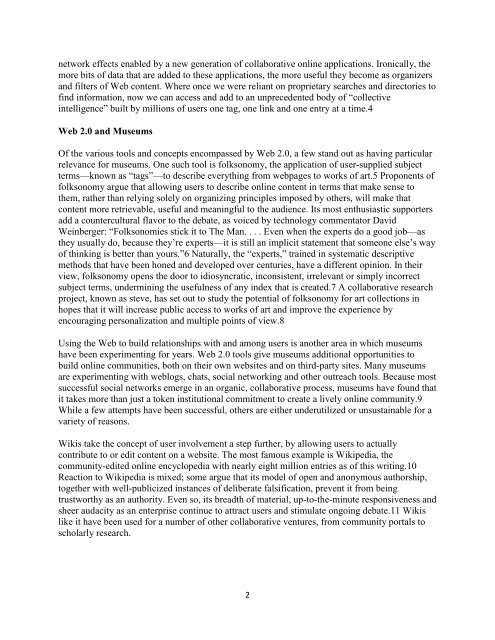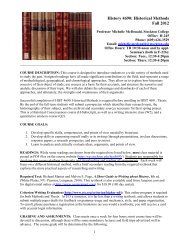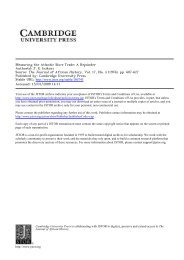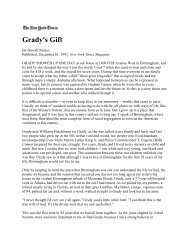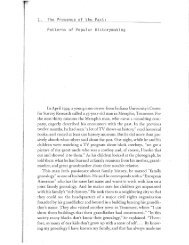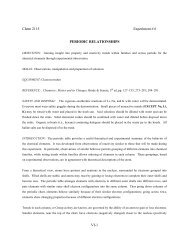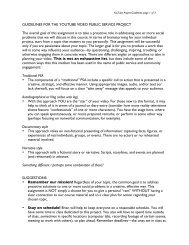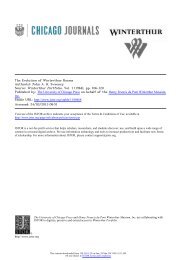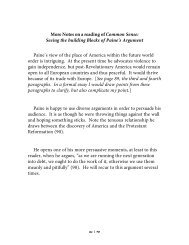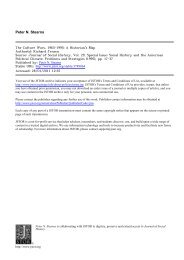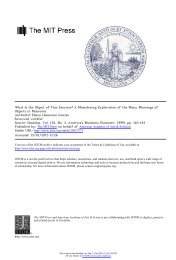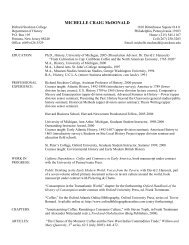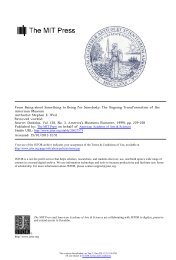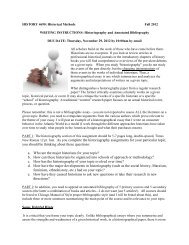can museum allow online users to become participants?
can museum allow online users to become participants?
can museum allow online users to become participants?
Create successful ePaper yourself
Turn your PDF publications into a flip-book with our unique Google optimized e-Paper software.
network effects enabled by a new generation of collaborative <strong>online</strong> applications. Ironically, the<br />
more bits of data that are added <strong>to</strong> these applications, the more useful they <strong>become</strong> as organizers<br />
and filters of Web content. Where once we were reliant on proprietary searches and direc<strong>to</strong>ries <strong>to</strong><br />
find information, now we <strong>can</strong> access and add <strong>to</strong> an unprecedented body of ―collective<br />
intelligence‖ built by millions of <strong>users</strong> one tag, one link and one entry at a time.4<br />
Web 2.0 and Museums<br />
Of the various <strong>to</strong>ols and concepts encompassed by Web 2.0, a few stand out as having particular<br />
relevance for <strong>museum</strong>s. One such <strong>to</strong>ol is folksonomy, the application of user-supplied subject<br />
terms—known as ―tags‖—<strong>to</strong> describe everything from webpages <strong>to</strong> works of art.5 Proponents of<br />
folksonomy argue that <strong>allow</strong>ing <strong>users</strong> <strong>to</strong> describe <strong>online</strong> content in terms that make sense <strong>to</strong><br />
them, rather than relying solely on organizing principles imposed by others, will make that<br />
content more retrievable, useful and meaningful <strong>to</strong> the audience. Its most enthusiastic supporters<br />
add a countercultural flavor <strong>to</strong> the debate, as voiced by technology commenta<strong>to</strong>r David<br />
Weinberger: ―Folksonomies stick it <strong>to</strong> The Man. . . . Even when the experts do a good job—as<br />
they usually do, because they‘re experts—it is still an implicit statement that someone else‘s way<br />
of thinking is better than yours.‖6 Naturally, the ―experts,‖ trained in systematic descriptive<br />
methods that have been honed and developed over centuries, have a different opinion. In their<br />
view, folksonomy opens the door <strong>to</strong> idiosyncratic, inconsistent, irrelevant or simply incorrect<br />
subject terms, undermining the usefulness of any index that is created.7 A collaborative research<br />
project, known as steve, has set out <strong>to</strong> study the potential of folksonomy for art collections in<br />
hopes that it will increase public access <strong>to</strong> works of art and improve the experience by<br />
encouraging personalization and multiple points of view.8<br />
Using the Web <strong>to</strong> build relationships with and among <strong>users</strong> is another area in which <strong>museum</strong>s<br />
have been experimenting for years. Web 2.0 <strong>to</strong>ols give <strong>museum</strong>s additional opportunities <strong>to</strong><br />
build <strong>online</strong> communities, both on their own websites and on third-party sites. Many <strong>museum</strong>s<br />
are experimenting with weblogs, chats, social networking and other outreach <strong>to</strong>ols. Because most<br />
successful social networks emerge in an organic, collaborative process, <strong>museum</strong>s have found that<br />
it takes more than just a <strong>to</strong>ken institutional commitment <strong>to</strong> create a lively <strong>online</strong> community.9<br />
While a few attempts have been successful, others are either underutilized or unsustainable for a<br />
variety of reasons.<br />
Wikis take the concept of user involvement a step further, by <strong>allow</strong>ing <strong>users</strong> <strong>to</strong> actually<br />
contribute <strong>to</strong> or edit content on a website. The most famous example is Wikipedia, the<br />
community-edited <strong>online</strong> encyclopedia with nearly eight million entries as of this writing.10<br />
Reaction <strong>to</strong> Wikipedia is mixed; some argue that its model of open and anonymous authorship,<br />
<strong>to</strong>gether with well-publicized instances of deliberate falsification, prevent it from being<br />
trustworthy as an authority. Even so, its breadth of material, up-<strong>to</strong>-the-minute responsiveness and<br />
sheer audacity as an enterprise continue <strong>to</strong> attract <strong>users</strong> and stimulate ongoing debate.11 Wikis<br />
like it have been used for a number of other collaborative ventures, from community portals <strong>to</strong><br />
scholarly research.<br />
2


